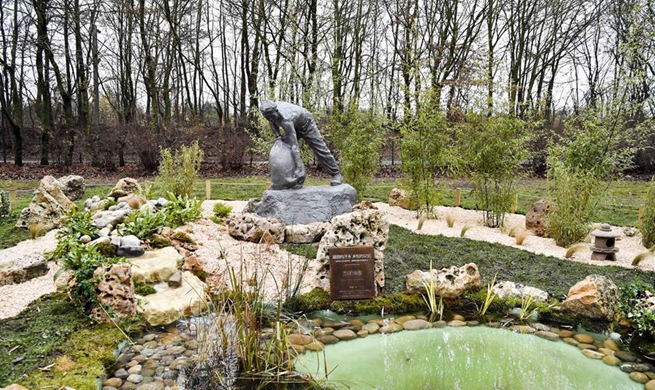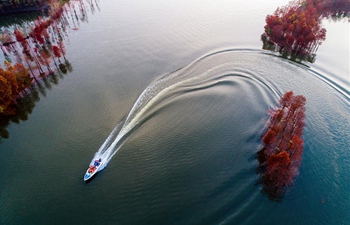QINSHUI, Shanxi, Nov. 28 (Xinhua) -- China launched a new dark sky site to preserve the starry night above Qinshui County, in the northern province of Shanxi, on Tuesday. It is the fourth of its kind established in the country.
The new China Conservation Area for Dark and Starry Sky based in Taihang Honggu National Forest possesses a unique quality of starry nights and a nocturnal environment, said Han Hailiang, deputy head of Qinshui County, at the launch.
Seeing the clear starry night as a rare resource, Qinshui will work to promote, protect, and take advantage of it, in hopes of becoming qualified as a new destination for stargazers and nature lovers from all over the world, he said.
Qinshui looks forward to becoming the first certified International Dark Sky Park by the International Dark-Sky Association (IDA) in China, while insisting on the preservation of the natural environment to be the top priority followed by public education and eco-tourism development, he added.
Ngari and Nagqu in southwest China's Tibet Autonomous Region and Yeludang, in the eastern province of Jiangsu, were the first conservation areas before Qinshui joined the club. Ngari is believed by experts to be the third most ideal stargazing site after Chile's Atacama Desert and Hawaii's Mauna Kea.
A dark sky reserve is a designated land specifically protected for its scientific, natural, educational, cultural heritage as well as public enjoyment, given the hazards that excessive lighting has been producing, explained Ren Xiaodong, China's dark-sky reserve promotor.
Increased energy consumption, disrupted ecosystem and wildlife, and harmed human health, among other concerns on safety and crimes, have been the consequences of artificial lighting going overboard, said an expert with the China Biodiversity Conservation and Green Development Foundation (CBCGDF) and the IDA's China branch.
Surrounded by three major mountain ranges of Taihang, Taiyue, and Zhongtiao, the national forest park covers 2,032 hectares and is protected from light pollution that overpowers the darkness at night, said Ding Jianbin, director of the park administration.
It is home to a nearly intact biodiversity, with more than 1,270 native plants and 347 animal species - including the endangered North-Chinese leopard - inhabiting the ancient temperate deciduous forest, he said.
As of mid-2018, a total of 64 International Dark Sky Parks have been certified by the IDA, while the two dark sky reserves in Nagqu and Ngari have been officially recognized as World Dark Sky Protected Areas by the International Union for Conservation of Nature (IUCN).
Qinshui looks to promote the forest park's bio-richness and all-natural environment in developing eco-tourism, health services including forest therapy, rehabilitation, recreation and related industries in the building of an ecological civilization.

















